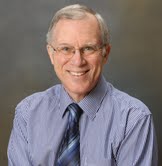May 1, 2017

In the fall of 2013 a new initiative was undertaken in Chicago for Christian unity at “grass-roots” level. This initiative, which eventually became known as The Catholic-Evangelical Conversation (TCEC), had its origin in the relationships of several individuals associated in different ways with the evangelical Lausanne Movement.
The Lausanne vision, expressed in The Cape Town Commitment, animated the early discussions of John Armstrong, Norberto Saracco and Douglas Birdsall who shared their vision with Thomas A. Baima and Robert Barron. Individuals associated with the Lausanne Movement formed the early core of the evangelicals who became involved with the Conversation. A second formative element of the Conversation came from the vision of Pope Francis who shares a growing need for unity for the sake of Christ’s mission. Individuals associated with the Archdiocese of Buenos Aries and Cardinal Bergoglio were early collaborators with the CEC. Both of these visions shape the direction of the CEC into the future.
The Catholic-Evangelical Conversation has become a relational, international, encounter between Christians who have recognized a call from the Holy Spirit to engage in missional-ecumenism. I coined the term missional-ecumenism to stress two truths: (1) God is both a unity in God’s self and as such is a “sending” God, and (2) God’s revealed desire is that we would be (relationally) one with God in this “sending” and “sent” (mission) process.
Those who participate in TCEC recognize each other’s baptism and incorporation into Christ, and are firmly committed to their own ecclesial tradition. The Conversation is rooted in the experience of baptism and the historic creeds as a sufficient basis from which to pursue common witness to the Lord Jesus Christ.
The Conversation seeks to strengthen the ties of our baptism through intentional relationship with other Christians. We do this by means of an experience shaped by listening, respect, prayer, study, non-sacramental worship and hospitality. Our name implies the non-official nature of this relationship. While recognized by our churches, even at the highest levels, TCEC remains the work and responsibility of the participants. It is supported in its work by two institutions, ACT3 Network and the University of Saint Mary of the Lake, each of which supply financial and logistical support.
International and Regional Encounters
As it is currently constituted, The Catholic-Evangelical Conversation has two expressions. The first is the Mundelein Encounter, which brings together leadership for fellowship and formation in missional ecumenism. The second are regional encounters, which will replicate the experience in cities where local leadership desire to share in the fruits of the Conversation and where the vision of missional ecumenism already finds expression.
Each year, the Mundelein Encounter embraces a theme. The regional encounters will follow the leading of the Spirit locally. Each encounter includes both closed invitational sessions and open public sessions, as the need determines. The invitations are issued by the Committee for the Catholic-Evangelical Conversation, which is ultimately responsible for the project.
Reports of The Mundelein Encounter are published each year on the ACT3 Network website (www.act3network.com), along with testimonials from participants. Occasionally, other resources may be published in the same manner. Our hope is to eventually produce a book which includes our papers and responses.
The Catholic-Evangelical Conversation includes pastors/ministry practitioners (both lay and ordained) and professors (theologians & biblical scholars) whose scholarship or ministry has been identified as offering something to the mutual exchange of gifts supporting missional-ecumenism. The Conversation’s goal is not to solve theological differences in the way an official dialogue does but to clear away misunderstanding that impedes missional cooperation and common witness.
Witness, Study, Prayer
The content of TCEC can be divided into three areas: witness, study, and prayer.
In witness we share our personal testimonies of, and reflections on, the experience of missional-ecumenism. We do this by engaging in a mutual exchange of gifts. Our goal is the personal/communal transformation of our lives together so that we might enter into deeper “conversion.”
In study we invite scholars from among the participants to offer presentations or responses based on several areas of common interest. These include: (1) The theology of missional ecumenism; (2) Significant issues of biblical interpretation and theological reflection on matters of faith and morals relevant to Christians working together for the spread of the gospel; (3) Theological reflection on the spirituality of unity; and, (4) Contemporary mission studies in the context of world Christianity.
Finally, we are committed to worship with one another. Here we provide opportunity to experience the formal worship of each tradition as well as an opportunity for Bible-based services planned by the group that are more informal. We also allow much time for shared prayer among participants.
This year we meet for the fourth time. (We took one year off to regroup and design a stronger model.) Thirty-four people will make up our small group when we gather this Fall, September 6-9. These participants will come from all across the United States as well as from Latin America, Africa, Canada and Europe, including Rome. We are committed to meeting with the same group of friends for three years so we can build relational unity by being together in the Holy Spirit, listening and loving as the Spirit leads us.
We ask you to pray for this unique meeting, to follow our gatherings through our published work, and to pray for God to be present in our midst. Pray, in particular, that this Catholic-Evangelical encounter model will be adopted in other locations as the fruit of this meeting is spread through the lives of all of those who participate and who experience its fruit in various forms.
John H. Armstrong is the president and founder of ACT3 Network, a ministry devoted to mission and ecumenism. He is the author of the forthcoming book, Costly Love: The Way to True Unity for All the Followers of Jesus (New City Press, July, 2017).
